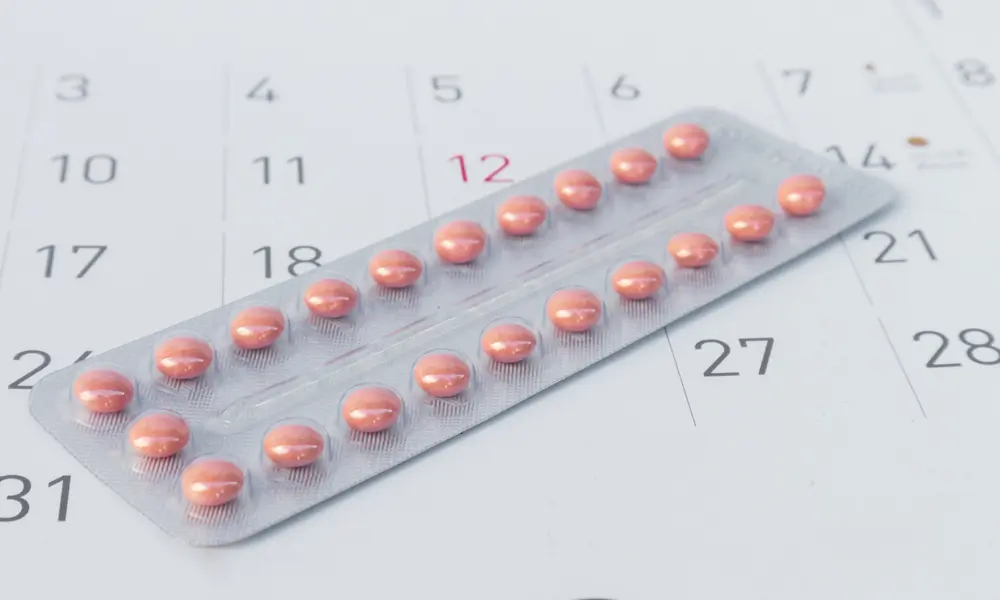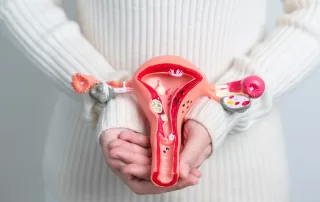How to delay a period.
For one reason or another, sometimes women will wish to delay a period. The monthly nuisance of menstruation is a fact of life that most women are used to. For some, periods are light and painless. For others, they are severe and debilitating, with labour-like cramps, heavy bleeding, diarrhoea and faintness. For most, it’s probably somewhere in the middle. But for all women who menstruate, it’s an inconvenience and requires a certain level of thought and planning. Of course, women just get on with things and do what must be done, as they have for millennia.
But when a big event like a wedding, exam or a much-anticipated holiday crops up, and a period is due slap-bang in the middle of it, it can be particularly frustrating- it may affect how a woman feels physically and mentally, what activities she can partake in, and what clothes she can wear! Women quite often come to their doctor to ask for ways to stop or delay a period in such situations. So, what are the options and do they work? Well there are actually a few, depending on the circumstances, time-frames involved, a woman’s preferences and medical history.
How to delay a period
The combined oral contraceptive pill or “the pill”
The combined oral contraceptive pill (commonly just called “the pill”) may be a good option for some, provided it’s started in time. If an event is a few months away, it may be possible to start the pill in advance and then try skipping the sugar pills (i.e. take pill packs “back to back”). For many women, this will prevent a period. It doesn’t always work, so it’s a good idea to try it out ahead of the event or holiday. But if contraception is also needed, it’s certainly worth considering. A doctor or online doctor can go through a series of questions to make sure it’s a safe and suitable option.
Oral progesterones
If the pill is not suitable, not desired, or the important event is too soon, an oral progesterone is an alternative method to delay a period, which works well in most but not all cases. Usually, it’s started several days before a period is due, and when it’s stopped, a period will occur within a few days. It is NOT a contraceptive, so it will not prevent pregnancy.

It is safe in most cases, but if a woman has certain health issues, such as an increased risk of clotting, it may not be the right choice. A doctor or online doctor will guide you through a series of questions if you’re considering it. It’s usually well tolerated, but side effects can include stomach upset, bloating, breast tenderness and reduced sex drive. The main advantage is that it can be used at short notice, if you need to delay a period that is only a week or two away.
Long acting contraceptives
Some women find that their periods stop if they use long term contraceptive options such as an intrauterine device or long-acting progesterone injection. However, this varies from woman to woman, and it often takes a few cycles for it to happen, so it’s not very helpful if the event in question is very soon.
Common Questions and Answers about delaying your period
When a big event like a wedding or holiday crops up, and your period is due at the same time, it can be very frustrating- it may affect how you feel physically and mentally, what activities you can take part in, and what clothes you can wear. In such situations, women quite often come to their doctor to ask how to stop a period from occurring. So, what are the options and do they work? There are actually a few, depending on the circumstances, the time-frames involved, your preferences and medical history. The three main ways are a progesterone tablet that you just take for a few weeks, the combined oral contraceptive pill, or a long acting contraceptive option. The last two options obviously need to be arranged well in advance, whilst a progesterone tablet can be started just before the expected period. Speak to a doctor to discuss your options.
In most cases your ability to become pregnant returns the moment a contraceptive medication is stopped or withdrawn. However, in the case of the long acting progesterone injection or “Depo injection”, it can take quite a few months for the effects to wear off, and the return to fertility can be delayed for a number of months.
UTI Symptoms and Treatment: What You Need to Know
UTI Symptoms and Treatment: What You Need to Know Urinary Tract Infections (UTIs) are common, uncomfortable, and often disruptive. But what exactly are the signs to watch for, and how can you get relief [...]
What is a hysterectomy and when is it needed?
What is a hysterectomy and when is it needed? A hysterectomy is a surgical procedure to remove a woman's uterus (womb), usually performed by a gynaecologist. It is commonly [...]
Attachment styles in adult relationships
Attachment styles in adult relationships Attachment theory has been studied and widely accepted in relation to children and their caregivers, but over recent years there is much more focus [...]




